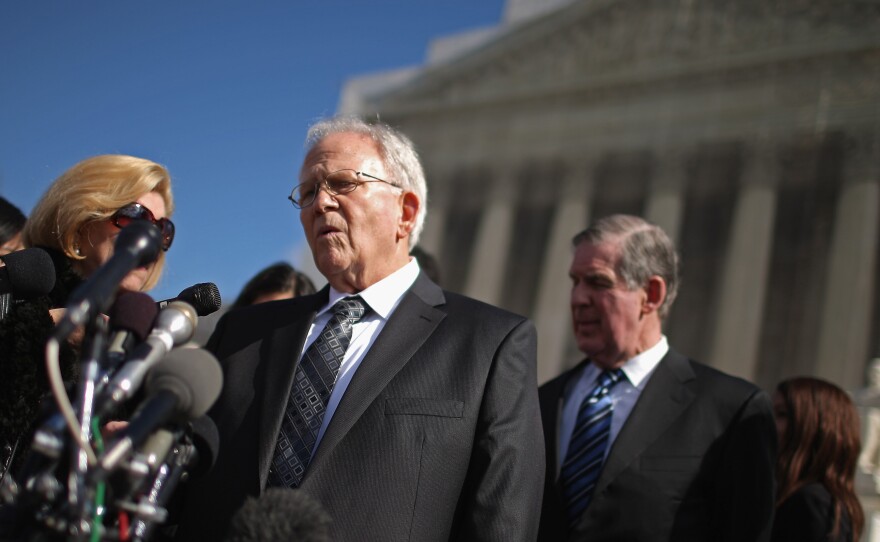
The U.S. Supreme Court's decision to strike down a key provision of the 1965 Voting Rights Act came in a case from the very state that helped shape the statute: Alabama.
The court's opinion in Shelby County v. Holder notes that history did not stop in 1965 -- the year state troopers fired tear gas and beat back voting-rights protesters on Selma's Edmund Pettus Bridge. Pointing out that Selma is now governed by an African-American mayor, Chief Justice John Roberts wrote that "the Act has proved immensely successful at redressing racial discrimination and integrating the voting process."
But the 5-4 decision declared unconstitutional a section of the law that established a formula to identify state and local governments that were required to get approval from the federal government before they made changes to their voting laws. The Supreme Court said Congress can change that part of the law -- Section 4 -- to reflect "current conditions" if it wants to continue to enforce it.
Luther Strange, Alabama's Republican attorney general, calls the ruling historic.
"What I'm most pleased about [is] it's a recognition of the tremendous amount of progress that we've made in Alabama over the last 50 years," he says.
Governors and other officials from Southern states are lauding the decision as a victory for federalism -- and as an acknowledgement that those states should no longer be punished for activities that occurred more than a generation ago.
Strange says there's no doubt that federal oversight was needed in the 1960s. But times have changed.
"To treat Alabama the way all the other states are treated is a huge victory -- symbolically, I think, and practically," he says.
In practical terms, for instance, Alabama, Mississippi, Texas and other Southern states that would have previously had to seek federal approval can now put in place recently passed voter identification laws.
Mixed Reaction
Charles Steele, an Alabamian who is national president of the Southern Christian Leadership Conference, calls Tuesday's court decision a blow to democracy that harkens to unfair poll tests under Jim Crow.
"When you say voter's ID and bring your birth certificate, identify yourself," he says, it recalls a time when blacks attempting to vote were asked: "How many bubbles in a bar of soap?"
"It's no different than presenting us with all of these obstacles when it comes to vote to prove that we are an American citizen," Steele says.
In Shelby County, Ala., the fast-growing suburb of Birmingham that challenged the Voting Rights Act, the ruling is being met with mixed reaction.
State Sen. Cam Ward says it's wrong to apply civil rights-era standards today when black participation at the polls is on par with that of whites.
"Shelby County, Ala., in particular, is not 1966 Shelby County, Ala.," Ward says. "We've had African-Americans and other minorities elected to municipal ... and countywide offices here in this county."
But others are skeptical that enough progress has come. The Rev. Albert Jones of Mount Olive Baptist Church in Wilton, Ala. -- which is located in Shelby County -- had intervened in the case to preserve federal oversight of elections there.
"We have come a long way, but we are not where we need to be there," Jones says. "We're still not there at that level playing field that all citizens be treated equally."
Jones says he is hopeful that Congress can restore some federal jurisdiction.
Shelby County attorney Butch Ellis, who filed the challenge, also welcomes a new formula from Congress.
"Come up with a test that ... actually identifies where that discrimination is today -- not where it was 50 years ago," he says.
In the meantime, he says, the Voting Rights Act is alive and well, and people can still sue under Section 2 of the law if they have been disenfranchised.
Copyright 2013 NPR. To see more, visit www.npr.org.






